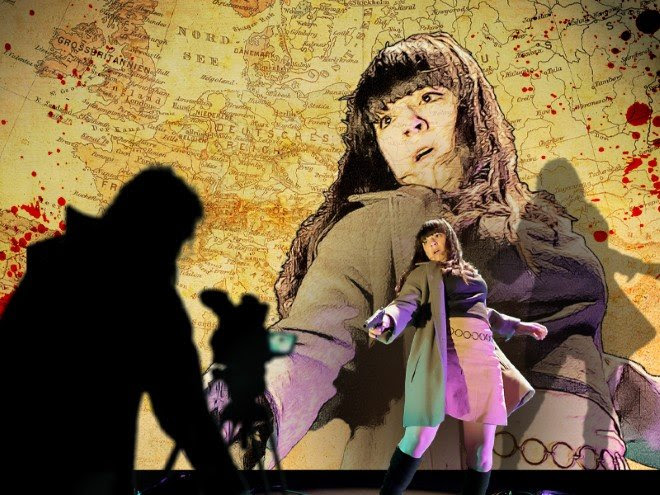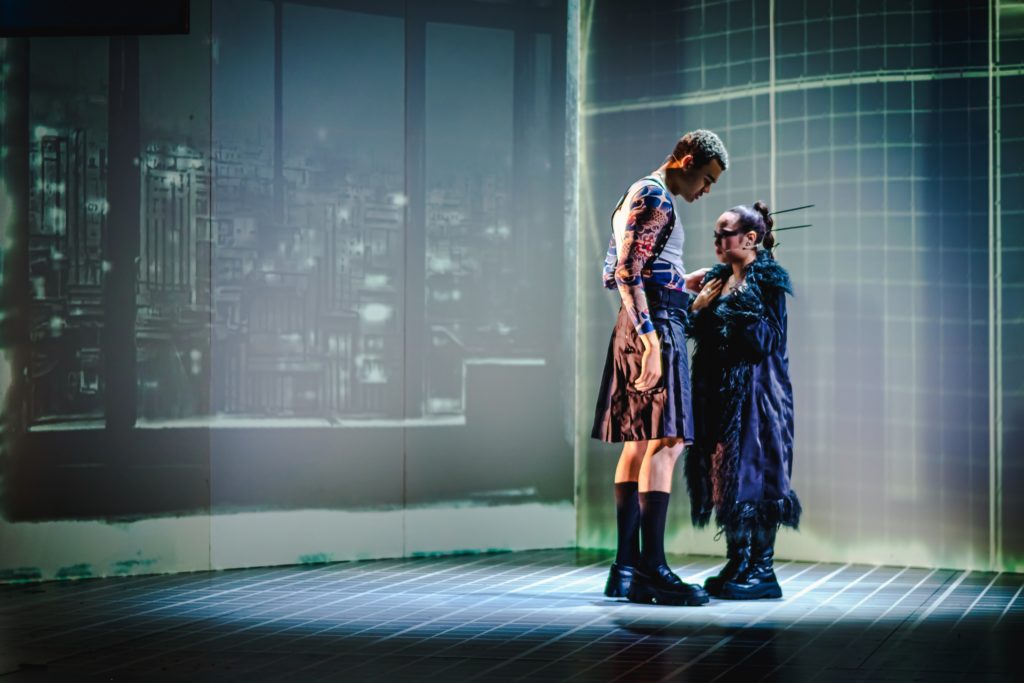
THREE mysterious figures enter the stage, talking of the hurly-burly, thunder and lightning and a young couple hell bent on overthrowing the old regime.
Whereupon they conjure the Macbeths, placing them in a dangerous new world ruled by paranoia, betrayal, and brutality.
Something wicked – but not wholly familiar – this way comes in ground-breaking Leeds company Imitating The Dog’s typically audacious retelling of Shakespeare’s “Scottish Play”, on tour at Harrogate Theatre on February 24 and 25.
Retold and directed by Andrew Quick and Pete Brooks, with set and video design by Simon Wainwright and original music by James Hamilton, Macbeth’s tale of ambition, betrayal and downfall is re-booted as a neon noir thriller wherein Shakespeare’s language collides with “startling new scenes, stunning visuals and a powder-keg intensity”.
“Macbeth is an extraordinary play,” says Imitating The Dog artistic director Andrew Quick. “Shakespeare’s exploration of power, ambition, violence and love seems so relevant to today.
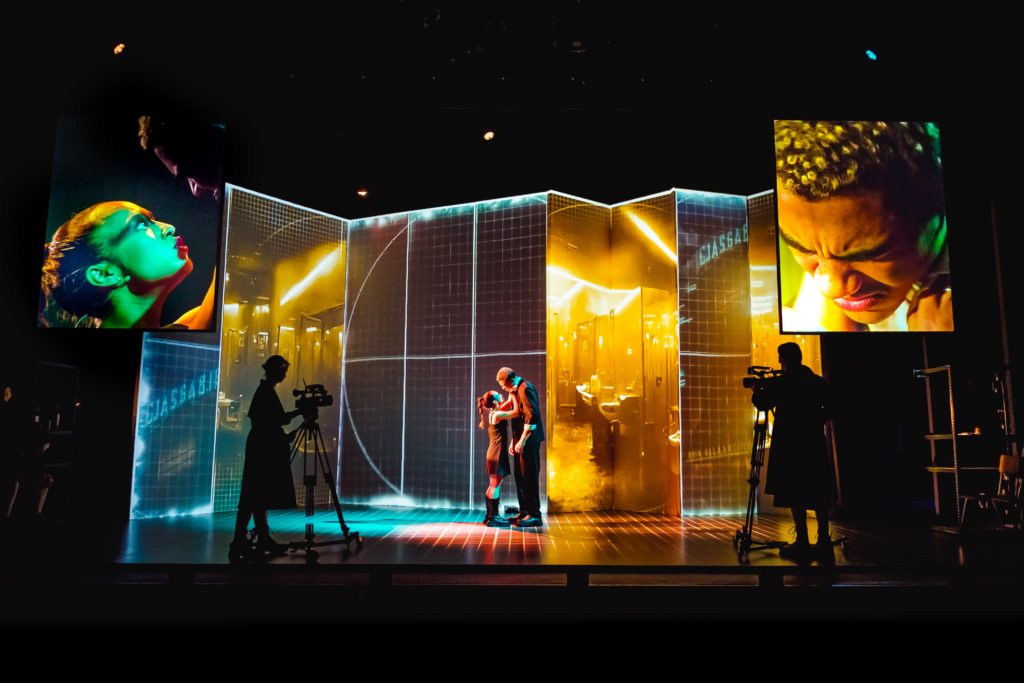
“We’re excited to be bringing Macbeth to Harrogate Theatre in a unique take on the original play, a Macbeth as you have never seen before, but still with Shakespeare’s story at its heart.”
Fusing live performance with digital technology for 23 years, latterly in Night Of The Living Dead ™ – Remix and Dracula: The Untold Story, Imitating The Dog turn to Shakespeare after staging Cinema Inferno for the Parisian haute couture house Maison Margiela, based on an original concept by creative director John Galliano, for Maison Margiela’s Artisanal 2022 collection.
“We started off with Romeo & Juliet, working on a version for two actors in their 60s or 70s,” says Andrew. “We did some research, but it felt like a one-idea show that we couldn’t commit to.
“But Macbeth was a play we really liked, and there’ve been a lot of film versions, with two recent ones [Joel Coen’s The Tragedy Of Macbeth, from 2021, and Justin Kurzel’s Macbeth, from 2015] still fresh in the mind. So, we thought, ‘if we can’t do Romeo & Juliet, let’s do Macbeth’.”
As a contrast with Denzel Washington and Michael Fassbender’s older Macbeths in those two films, Imitating The Dog settled on two young leads (played by Benjamin Westerby, from the Royal Shakespeare Company, and Maia Tamrakar, from Sheffield Crucible’s Rock, Scissors, Paper).
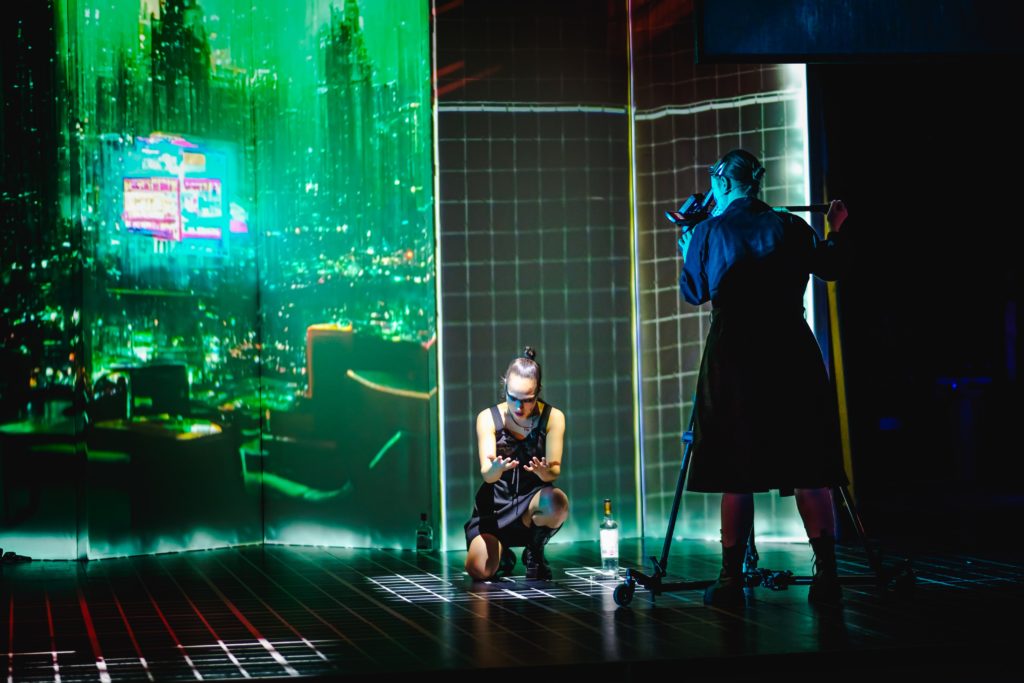
“In our adaptation, Macbeth and Lady Macbeth are 18-19 years old; they’re kids really, street kids,” says Andrew.
“We’ve set it in a kind of parallel world, a version of London that’s a cross between Tokyo, Shanghai, Los Angeles and London, with a Blade Runner feel to it. Duncan [the king in the original] is a crime lord; Macbeth seizes the moment, suddenly being thrown into the spotlight when he becomes second in line to Duncan, who starts thinking, ‘ooh, this kid is a bit much’.
“When Macbeth murders him, it’s not just about ambition but self-protection, because though he feels he’s really good at his job, he also feels that if he doesn’t kill him now, he could get done in.”
As played by Stefan Chanyaem, Matt Prendergast (from Dracula:The Untold Story) and Laura Atherton (from Night Of The Living Dead™ – Remix), the witches/shape shifters set up the story in Imitating The Dog’s version, playing everyone bar the Macbeths, who have “fallen into this world that is testing them”.
“The witches are like clowns in suits, these grotesques, who do all the live filming on stage, with Macbeth always being filmed close-up, giving almost a forensic quality to the piece, adding to the psychological drama,” says Andrew.
That world is constructed with 70 to 30 per cent division between original text and new text with hints of the Russian, Italian and Japanese language: “little traces of those argots”, as Andrew puts it. “It’s a cosmopolitan city that is multi-racial, international, like lots of big cities nowadays. “It’s a city that the witches set up and the Macbeths descend into,” he says.
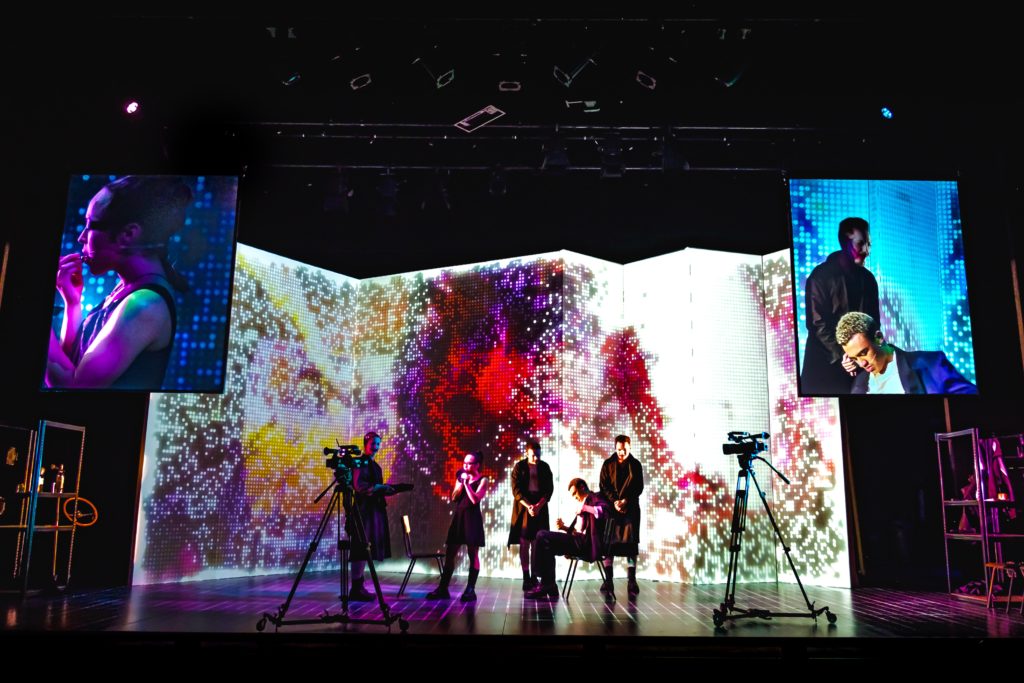
“In the back story, they were orphaned when growing up, and Macbeth is looking after her, more like a brother and sister rather than lovers.
“The challenge was: could we make the Macbeths lovable or at least understandable; make them human, whereas Shakespeare’s Richard III is more of a monster under all that Tudor propaganda of the time.”
Exploring the “challenge” further, Andrew says: “Whether you can really like them or not, I don’t know, but I think you can understand their motives in a very brutal world. The Macbeths do things that are terrible, they use extreme violence, like killing Lady MacDuff and the MacDuff children, but we’re not only interested in a story of power and ambition but the context in which that arises too. Right now, looking at monarchy and power feels very relevant.
“In this very violent world, the Macbeths’ love for each other is very important, with everything that Macbeth does being rooted in his need to protect Lady Macbeth. He’s always questioning, always doubting, always reassessing what he should do next, and what’s great about the play is that Shakespeare gives him humanity despite what he’s doing.”
A further reference point is Arthur Penn’s 1967 film Bonnie & Clyde. “Even though they do these terrible things, there’s something very attractive about them – and once they start, they have to keep going,” says Andrew.
Imitating The Dog in Macbeth, Harrogate Theatre, February 24 at 7.30pm; February 25, 2.30pm and 7.30pm. Box office: 01423 502116 or harrogatetheatre.co.uk. Further Yorkshire dates: CAST, Doncaster, February 21 and 22, 01302 303959 or castindoncaster.com; Lawrence Batley Theatre, Huddersfield, 01484 430528 or thelbt.org.
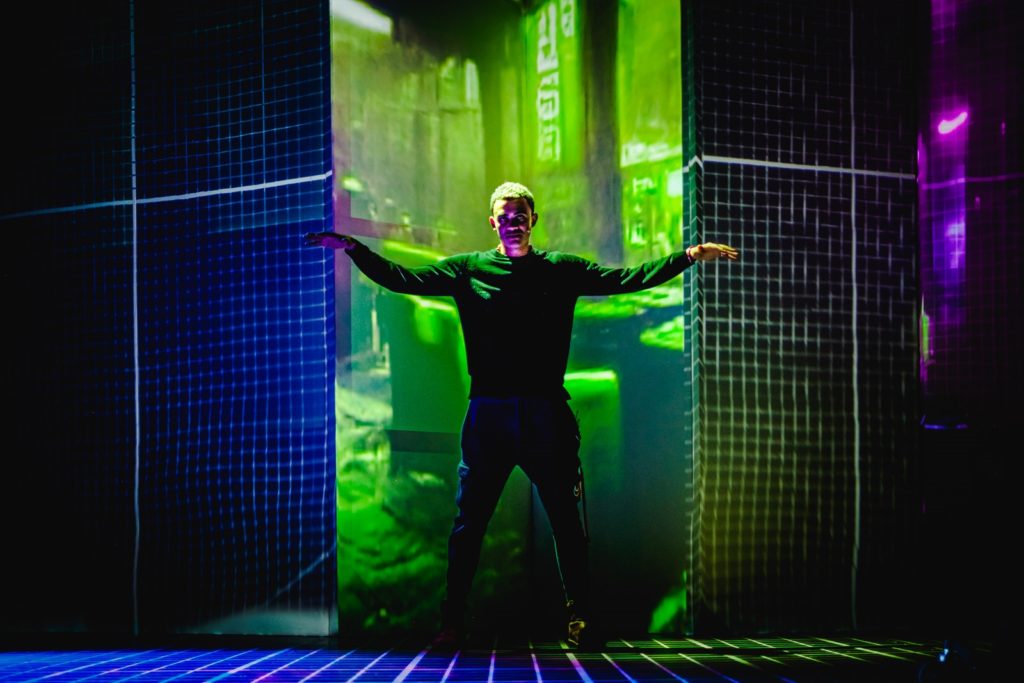
Copyright of The Press, York

